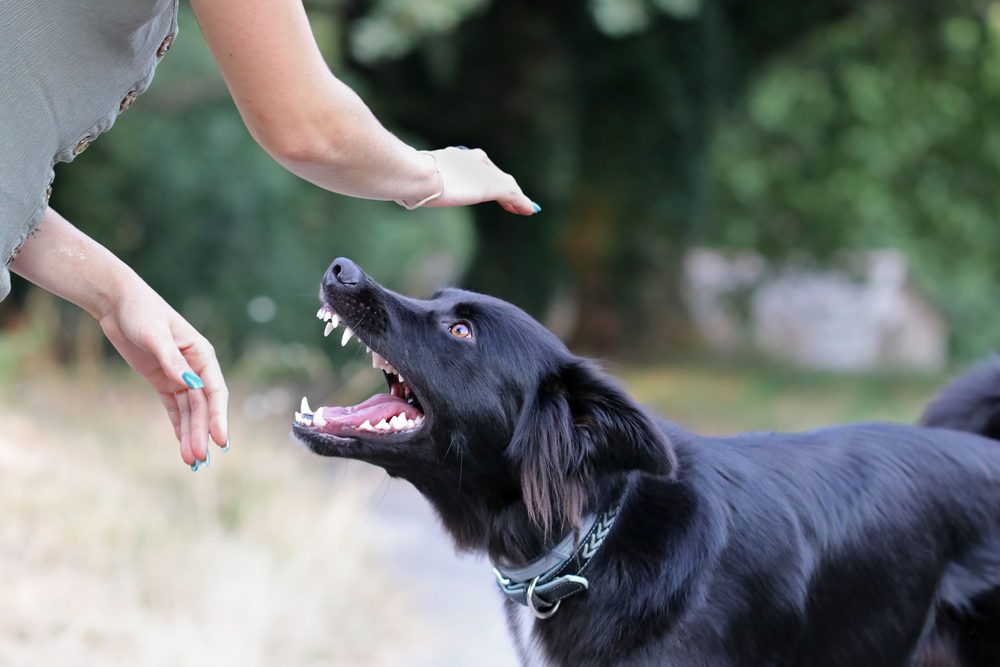
Dog Bites in British Columbia: Legal Implications, Rights and Responsibilities
Introduction
In British Columbia, local governments are responsible for creating and enforcing bylaws related to animal control. These bylaws outline the regulations and restrictions that pet owners must abide by, including licensing requirements, leash laws, and restrictions on the number of pets that can be kept. Pet owners need to familiarize themselves with these bylaws to avoid penalties and ensure the safety of their pets and the community.
This legislation’s primary goal is to ensure that dog owners take proper precautions to prevent their dogs from causing harm to others. This includes keeping dogs under control, properly restraining them when necessary, and preventing aggressive behaviour. In general, dog owners are liable for any damages or injuries caused by their dog biting or attacking another person or animal. This means that if you are a dog owner in British Columbia, you have a legal responsibility to ensure that your dog does not cause harm to others.
Dog Owner’s Responsibility in British Columbia
As a dog owner in British Columbia, you are responsible for properly training and socializing your dogs, keeping them restrained on a leash in public spaces unless in designated off-leash areas. By keeping dogs on a leash, owners can prevent potentially dangerous situations and minimize the risk of their dogs causing harm to others or themselves.
Additionally, dog owners are responsible for taking prompt and appropriate action if their dog shows signs of aggression or poses a threat to others. This may include muzzling the dog in public, seeking professional training or behaviour modification, or taking other necessary precautions to prevent incidents. Dog owners must proactively address any potential risks associated with their dogs to ensure the safety of everyone involved.
Furthermore, dog owners must comply with licensing requirements and clearly identify their dogs. This includes obtaining a valid dog license from the local government and ensuring the dog wears a visible identification tag with the owner’s contact information. By fulfilling these requirements, dog owners can ensure that their dogs can be easily identified and returned if they go missing or are involved in an incident.
Under BC law, dog owners are liable for dog bites if:
- they are negligent;
- the dog had a propensity for harm and the owner knew of the dog’s propensity; or
- liability can be established under the Occupier’s Liability Act.
In dog bites or attacks, the focus is on the dog’s actions and the resulting harm rather than the owner’s intentions. In the case of dog bites, the injured party can seek compensation for medical expenses, pain and suffering, loss of income, and other damages resulting from the dog bite or attack. The owner may also be liable for any property damage caused by the dog.
Breed-specific legislation, often called BSL, which targets certain breeds or types of dogs, is not in effect in BC. This means that the law in BC focuses on the behavior and actions of individual dogs rather than generalizing based on breed stereotypes.
Dog owners must comply with licensing requirements and clearly identify their dogs
In the case of dog bites, the injured party can seek compensation for medical expenses, pain and suffering, loss of income, and other damages resulting from the dog bite or attack. The owner may also be liable for any property damage caused by the dog.
Insurance considerations for dog owners in British Columbia
Being adequately insured can provide financial protection in case of unexpected incidents involving your dog.
Homeowner’s or renter’s insurance policies typically include liability coverage for dog-related incidents. This coverage can help protect you financially if your dog bites or injures someone or causes damage to someone’s property. However, it is essential to review your policy carefully to understand the specific coverage and any exclusions or limitations that may apply.
Some insurance companies may have breed restrictions or exclusions regarding dog-related liability insurance. Certain breeds may be considered higher risk due to their perceived propensity for aggression or the severity of potential injuries they can cause. It is essential to disclose accurate information about your dog’s breed and behaviour when obtaining insurance to ensure that you have adequate coverage.
If your insurance policy does not provide sufficient coverage or excludes certain breeds, you may need to consider obtaining additional coverage through a separate dog liability insurance policy. These specialized policies are designed to specifically cover dog-related incidents and can provide you with peace of mind knowing that you are protected financially in case of any unforeseen events involving your dog.
In addition to liability coverage, it is also worth considering pet health insurance for your dog. Pet health insurance can help mitigate the financial burden of unexpected veterinary expenses, including accidents, illnesses, and injuries.

In the case of dog bites, the injured party can seek compensation for medical expenses, pain and suffering, loss of income, and other damages resulting from the dog bite or attack. The owner may also be liable for any property damage caused by the dog.
The Process of Filing a Dog Bite Claim
If you are a dog bite victim in British Columbia, you have the right to seek compensation for your injuries and damages. The process of filing a dog bite claim typically involves the following steps:
- Seek Medical Attention: The first and most important step is to seek immediate medical attention for your injuries. Not only for your health and well-being but to establish a record of your injuries, which will be necessary for your claim.
- Gather Evidence: Collect any evidence related to the dog bite incident, such as photographs of your injuries, witness statements, and any medical records or bills. This evidence will support your claim and help establish liability.
- Report the Incident: Contact the appropriate authorities, such as your local animal control or police department, and report the dog bite incident. This will create an official record of the incident, which can be helpful during the claims process.
- Please consult with a Personal Injury Lawyer: A personal injury lawyer experienced in dog bite cases will guide you through the legal process, help you understand your rights, and negotiate on your behalf to ensure you receive fair compensation.
Factors that Determine Liability in Dog Bite Cases
Various factors determine liability in dog bite cases in British Columbia. These factors are considered when determining whether the dog owner should be held responsible for the incident. Some of the key factors that may influence liability include:

- Provocation: If the victim provoked the dog, it may affect the dog owner’s liability. However, it is important to note that even if the victim provoked the dog, the owner may still be held partially liable if the dog’s response was excessive or disproportionate.
- Negligence: If the dog owner failed to take reasonable precautions in preventing the dog from biting or attacking others, they may be considered negligent. Negligence can include not properly restraining the dog or failing to address known aggressive behaviour.
- Trespassing: If the victim was trespassing on the owner’s property at the time of the incident, it may impact the dog owner’s liability. However, even in trespassing cases, the owner may still be liable if the dog’s response was unreasonably aggressive.
When you consult with a personal injury lawyer, discuss the specific details of your case and determine the factors that may affect liability.
Compensation and Damages for Dog Bite Victims
The damages you may be entitled to can include:
- Medical Expenses: Compensation for medical bills, including emergency treatment, hospitalization, surgeries, medications, and rehabilitation.
- Pain and Suffering: Compensation for the physical and emotional pain, suffering, and trauma caused by the dog bite.
- Lost Wages: If the dog bite resulted in the victim being unable to work, they may be entitled to compensation for lost wages and future earning capacity.
- Property Damage: Compensation for any damage to personal property caused by the dog bite.
The amount of compensation will vary depending on the severity of the injuries and their impact on the victim’s life. Consulting with a personal injury lawyer will help you understand the potential compensation you may be entitled to.
Dog Bite Prevention and Responsible Pet Ownership
- Preventing dog bites is a shared responsibility between dog owners and the community. As a dog owner in British Columbia, take proactive measures to prevent your dog from biting or attacking others. This includes:
- Proper Training and Socialization: Ensure your dog receives proper training and socialization from a young age to teach it good behaviour and reduce the risk of aggression.
- Secure Fencing and Leashing: Keep your dog securely fenced in your yard, and always keep it on a leash in public spaces. This will prevent the dog from approaching or attacking others.
- Responsible Supervision: Always supervise your dog when they are around other people or animals. This is especially important if your dog has shown any signs of aggression in the past.
- Spaying or Neutering: Consider spaying or neutering your dog, as this can reduce their aggression and decrease the likelihood of them biting or attacking.
Additionally, the community must be educated about dog bite prevention. Teaching children how to interact safely with dogs and reporting aggressive or dangerous dogs to the appropriate authorities can help prevent dog bite incidents.
The Role of Animal Control and Bylaws in British Columbia
In British Columbia, animal control plays a vital role in ensuring public safety and enforcing dog-related bylaws. Animal control officers are responsible for responding to dog bite incidents, investigating complaints, and enforcing bylaws related to dog ownership. These bylaws may include regulations regarding leashing, licensing, and handling aggressive dogs. Dog owners need to familiarize themselves with the specific bylaws in their municipality and comply with them to avoid legal consequences.

Conclusion
Awareness of the legal implications of dog bites is crucial for both dog owners and victims in British Columbia. Dog owners are responsible for preventing their dogs from biting or attacking others, and victims have the right to seek compensation for their injuries and damages. By understanding the legal process, consulting with a personal injury lawyer, and taking proactive measures to prevent dog bites, we can create a safer and more responsible dog-owning community in British Columbia. Remember, knowing your rights and responsibilities is the first step towards ensuring a harmonious coexistence between dogs and humans.
If a dog has bitten you or you need legal advice regarding dog bites in British Columbia, contact a personal injury lawyer experienced in dog bite cases to protect your rights and seek fair compensation.






